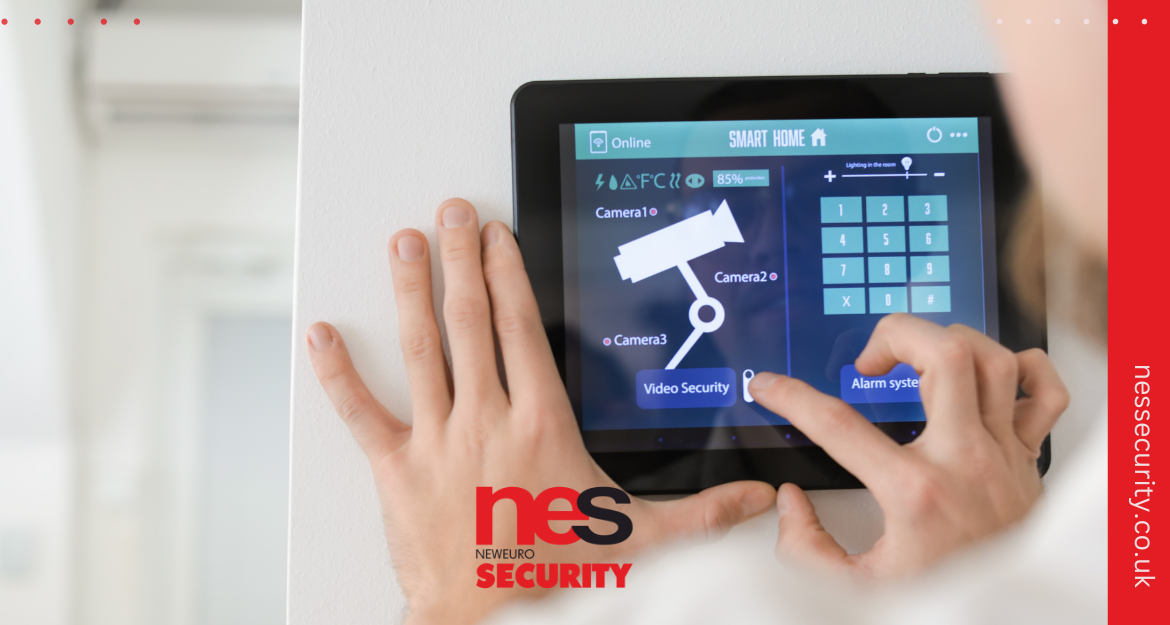Imagine a world where your home is not just a place of comfort and security but also a sanctuary that safeguards your privacy and protects your data. In an era of interconnected devices and smart technologies, the concept of home security has evolved beyond traditional locks and alarms. The rise of smart home technology brings a new set of challenges and considerations when it comes to protecting your privacy and data. In this article, we will explore the realm of smart home security and delve into the essential measures you can take to ensure your privacy remains intact and your data stays secure.
Our homes are a reflection of who we are, filled with cherished memories, personal belongings, and the comfort of familiarity. With the advent of smart home technology, we have the power to transform our living spaces into intelligent environments that cater to our needs and preferences. However, as our homes become smarter, the need to safeguard our privacy and protect our data becomes paramount.
Understanding the Importance of Smart Home Security
Smart home security goes beyond traditional physical measures. It encompasses the protection of your privacy and the security of your data within the digital realm. The interconnected nature of smart devices opens up possibilities for potential vulnerabilities and risks. Understanding the importance of smart home security is the first step in ensuring that your privacy and data remain protected.
Safeguarding Your Privacy in the Age of Smart Homes
In the age of smart homes, safeguarding your privacy requires a multifaceted approach. Start by being mindful of the data collected by your smart devices and the permissions you grant. Regularly review and update privacy settings, limit data sharing, and be cautious about the information you provide. Additionally, consider implementing strong passwords and encryption, as well as keeping your devices and software up to minimise security vulnerabilities.

The Risks and Vulnerabilities of Smart Home Technology
While smart home technology offers convenience and automation, it also introduces certain risks and vulnerabilities. Hackers may exploit weak security measures, gaining unauthorised access to your devices and potentially compromising your privacy and data. Being aware of these risks and vulnerabilities empowers you to take proactive steps to mitigate them.
Protecting Your Data: Best Practices for Smart Home Security
Protecting your data in a smart home environment requires adopting best practices for security. Start by securing your home network with a strong, unique password and enabling network encryption. Regularly update your devices and smart home apps to patch security vulnerabilities. Implement two-factor authentication whenever possible to add an extra layer of protection. Finally, be cautious about the smart devices you bring into your home, opting for reputable brands with a focus on security.
Smart Home Security Solutions: Enhancing Privacy and Protection
As the demand for smart home security increases, so does the availability of solutions to enhance privacy and protection. From secure home network gateways to advanced encryption protocols, there are various technologies and services designed to bolster your smart home security. Exploring these solutions and integrating them into your smart home ecosystem can provide peace of mind and a higher level of privacy and data protection.
Securing Your Smart Home Network: Tips and Strategies
Securing your smart home network is crucial for maintaining privacy and protecting your data. Some key tips and strategies include using a strong, unique password for your Wi-Fi network, disabling unnecessary features and ports on your router, and segmenting your network to isolate smart devices from other devices. Regularly monitoring network activity and staying informed about the latest security threats can also help you stay one step ahead of potential risks.
Strengthening Data Security in Smart Home Devices
Smart home devices collect and store vast amounts of data, making them potential targets for cyberattacks. Strengthening data security involves implementing measures such as enabling device-level security features, encrypting sensitive data, and restricting unnecessary data sharing. Regularly updating firmware and apps, as well as being selective about the devices you choose to connect to your smart home network, are additional steps towards bolstering data security.
The Future of Smart Home Security: Innovations and Challenges
The future of smart home security holds both exciting innovations and unique challenges. As technology continues to advance, we can expect the emergence of more sophisticated security protocols, advanced encryption methods, and artificial intelligence-driven threat detection systems. However, with new technologies come new challenges, such as the need for comprehensive privacy regulations and the ongoing battle against increasingly sophisticated cyber threats.
Emerging Technologies in Smart Home Security
Emerging technologies are reshaping the landscape of smart home security. Innovations such as biometric authentication, blockchain-based data encryption, and machine learning algorithms for anomaly detection are paving the way for enhanced privacy and data protection. These technologies offer promising solutions to mitigate the risks associated with smart home security.

Addressing Privacy Concerns in the Next Generation of Smart Homes
As smart homes continue to evolve, addressing privacy concerns becomes crucial to ensuring widespread adoption. Developers and manufacturers must prioritise privacy by design, implementing transparent data practices and user-friendly privacy controls. Additionally, policymakers play a vital role in establishing robust privacy regulations that safeguard consumer rights and promote responsible data-handling practices.
FAQs
Can smart home devices be hacked?
While no system is entirely hack-proof, implementing security measures such as strong passwords, firmware updates, and encryption can significantly reduce the risk of unauthorised access.
How can I protect my smart home from cyberattacks?
Protecting your smart home involves securing your home network, regularly updating devices and apps, and being cautious about the devices you choose to connect to your network.
Final Thoughts
In a world where technology permeates every aspect of our lives, smart home security and privacy become paramount concerns. By understanding the risks, implementing best practices, and staying informed about emerging technologies, you can create a smart home environment that prioritises your privacy and protects your data. Remember, the future of smart home security lies not only in technological advancements but also in your proactive efforts to maintain secure and private living spaces.
If you’re looking to enhance your home’s security and privacy with a comprehensive solution, consider Nes Security. Nes Security specialises in providing tailored security solutions that cater to your specific needs. Whether it’s installing advanced surveillance systems, implementing secure smart home networks, or integrating cutting-edge encryption protocols, Nes Security has the expertise to ensure your home remains a safe and private haven. Their team of professionals will guide you through the process, from initial consultation to seamless installation, providing peace of mind and a heightened sense of security.
Protect your privacy, secure your data, and experience the peace of mind you deserve with Nes Security’s smart home security solutions.


